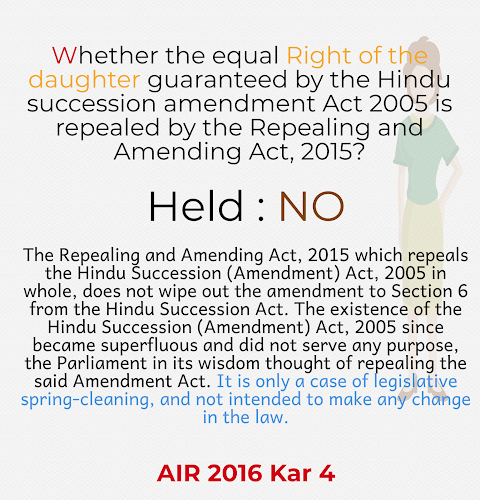Search This Blog
Tuesday, 28 July 2020
Sunday, 26 July 2020
Saturday, 25 July 2020
Friday, 24 July 2020
Wednesday, 22 July 2020
Monday, 20 July 2020
Sunday, 19 July 2020
Senior Citizen's Rights In India
1. Provisions have been made in the Constitution of India to preserve the rights of those aged above 60. Since these articles are part of Chapter IV of the constitution which corresponds to Directive Principles, they cannot be enforced by a court of law as stated in Article 37, however, they are the basis upon which any legislation is drafted.
2. Article 41 of the Constitution secures the right of senior citizens to employment, education and public assistance. It also ensures that the state must uphold these rights in cases of disability, old age or sickness. Meanwhile, Article 46 asserts that the educational and economic rights of the elderly must be protected by the state.
3. As per rights guaranteed under the National Policy for Older Persons, 1999, all Indian citizens aged above 60 are entitled to a 30 per cent concession in ticket prices while travelling with the Indian Railways. The concession is 50 per cent for women aged above 60 along with the provision for separate counters and other services including berth requests.
4.Section 88-B, 88-D, and 88-DDB of the Income Tax Act of India allow senior citizens to claim a discount in tax. The elderly are also entitled to get higher interest on tax saving plans apart from having a wide variety of LIC policies and post office saving schemes to choose from.
Maintenance and Welfare of Parents and Senior citizens Act, 2007, S.23 -- Cancellation of transfer deed - Law only contemplates breach on the part of transferee in providing amenities and physical needs to the transferor - It does not stipulate that condition of providing maintenance should be part of such transfer.
(ii) Maintenance and Welfare of Parents and Senior citizens Act, 2007, S.23 -- Cancellation of transfer deed - If love and affection was the circumstances for executing such deed, any failure on the part of transferee to provide amenities and physical needs to the transferor would attract the grounds for revocation u/s 23 of the Act - Any emotional detachment or creation of an atmosphere as opposed to the one demanded by a senior citizen would be sufficient to attract S.23 of the Act.
(iii) Maintenance and Welfare of Parents and Senior Citizens Act, 2007, S.23 -- Cancellation of transfer deed - Scope of inquiry in a matter related u/s 23 of the Act must be related and confined to circumstances under which document was executed - Strict pleadings or evidence cannot be insisted in such proceedings - Law only contemplates breach on part of transferee in providing amenities and physical needs to transferor - It does not stipulate condition of providing maintenance should be part of such transfer.
(iv) Maintenance and Welfare of Parents and Senior Citizens Act, 2007, S.23 -- Cancellation of transfer deed - Any emotional detachment or creation of an atmosphere as opposed to one demanded by a senior citizen would be sufficient to attract S.23 of the Act.
(v) Maintenance and Welfare of Parents and Senior Citizens Act, 2007, S.23 -- Cancellation of transfer deed - Scope of inquiry u/s 23 of the Act - Tribunal has to follow procedure for enquiry as in an inquisitorial system and not as in an adversarial litigation - Irrespective of pleadings raised by senior citizen, he has to address grievance of senior citizen as expressed before him to elicit truth.
(2020(1) Criminal Court Cases 141 (Kerala)
Saturday, 18 July 2020
Procedure, Conditions and documents required for Court marriage under Special Marriage Act, 1954
>>> No wedding notice to couple's house on register marriage: Rajasthan High Court<<< Kuldeep Singh versus State of Rajasthan and Ors., 2018
Friday, 17 July 2020
Thursday, 16 July 2020
Whether Sub Registrar can cancel the registration of registered document?
Wednesday, 15 July 2020
Monday, 13 July 2020
Types of mortgage loans in India
Sunday, 12 July 2020
Thursday, 9 July 2020
Where to file petition for divorce and maintenance ? कोनसे न्यायालय में भरण पोषण व विवाह विच्छेद / तलाक़ की याचिका पेश करे ?
Wednesday, 8 July 2020
Tuesday, 7 July 2020
Monday, 6 July 2020
Modes of Acquiring and losing Indian Citizenship
PROVISIONS FOR ACQUIRING
CITIZENSHIP ARE LISTED UNDER THE CITIZENSHIP ACT, 1955.
|
PROVISIONS
FOR LOSING CITIZENSHIP ARE LISTED UNDER THE CITIZENSHIP ACT, 1955.
|
If an
Indian citizen wishes, who is of full age and capacity, he can relinquish
citizenship of India by his will. When
a person relinquishes his citizenship, every minor child of that person also loses Indian citizenship. However, when such a child attains the age of 18,
he may resume Indian citizenship. 2.
By
Termination: The Constitution of India provides single citizenship. It means an Indian person can only be a citizen of one country at a time. If a person takes the citizenship of another country, then his Indian citizenship ends automatically. However, this provision does not apply when India is busy in war. The
Government of India may terminate the citizenship of an Indian citizen if; (i). Citizen has disrespected the Constitution (ii). Has obtained citizenship by fraud (iii). The
citizen has unlawfully traded or communicated with the enemy during a war. (iv). Within
5 years of registration or naturalisation, a citizen has been sentenced to 2
years of imprisonment in any country. (v). Citizen has been living outside India for 7 years continuously. |




























